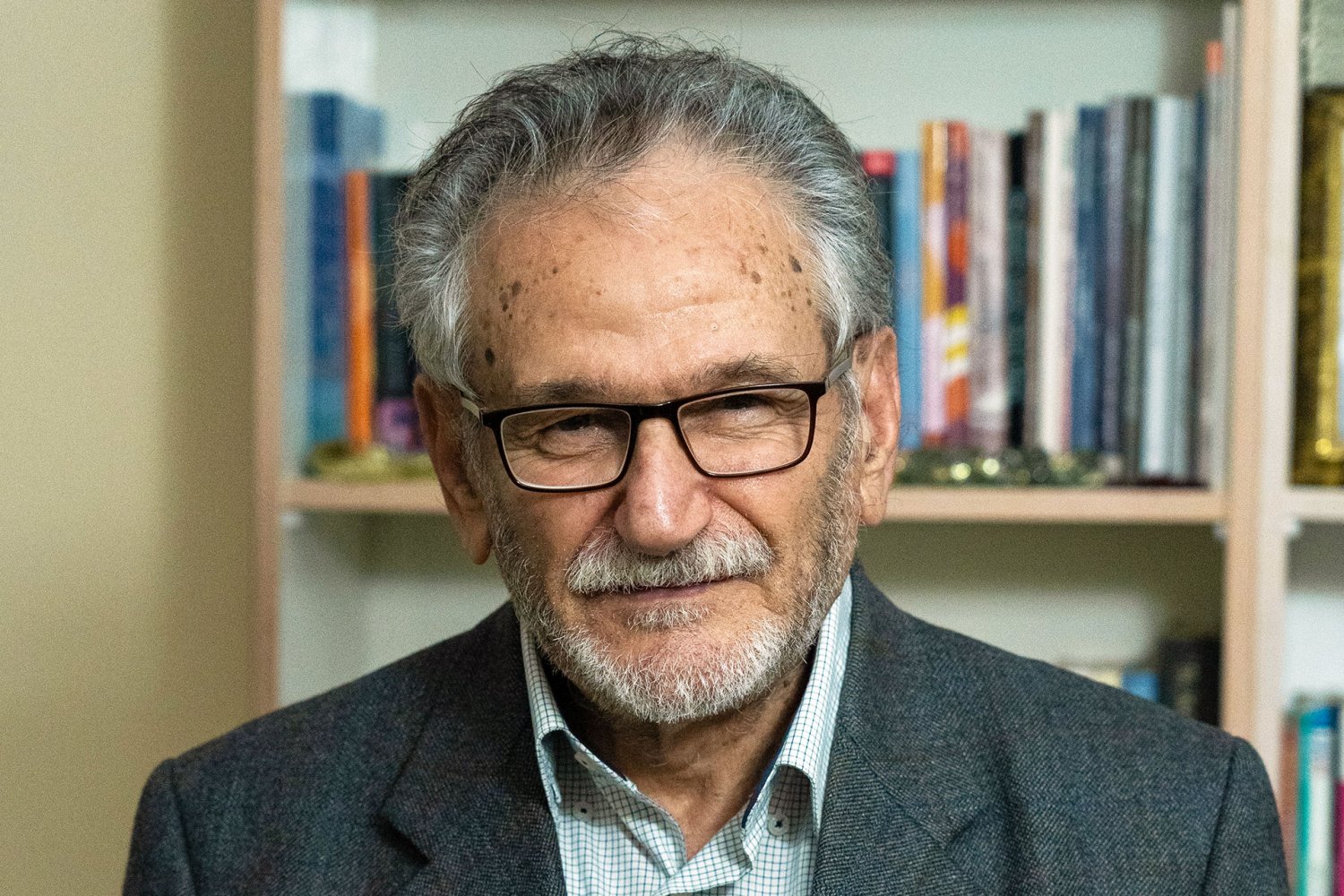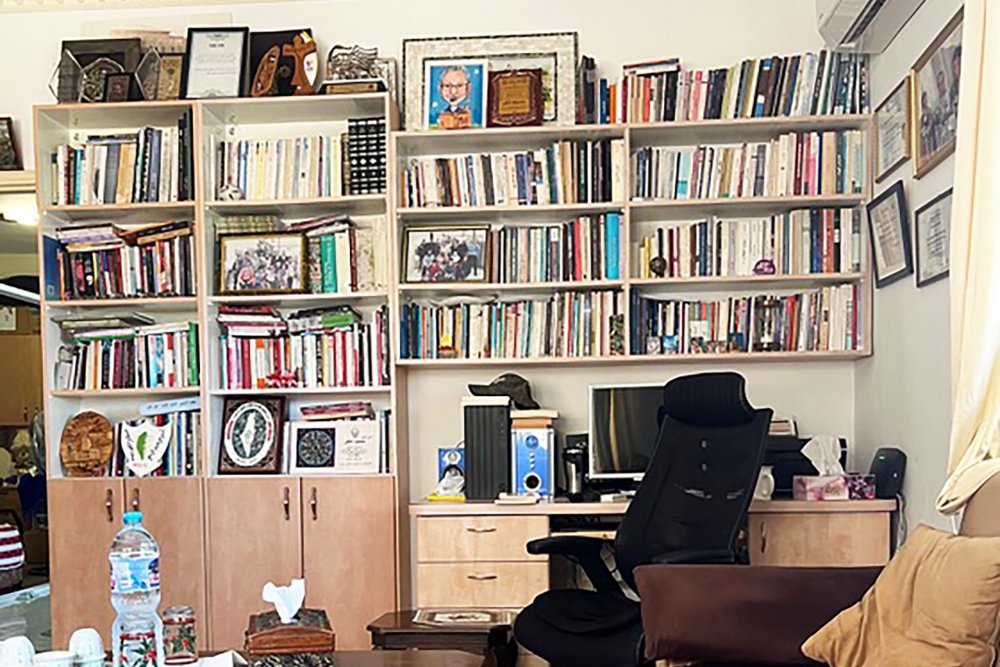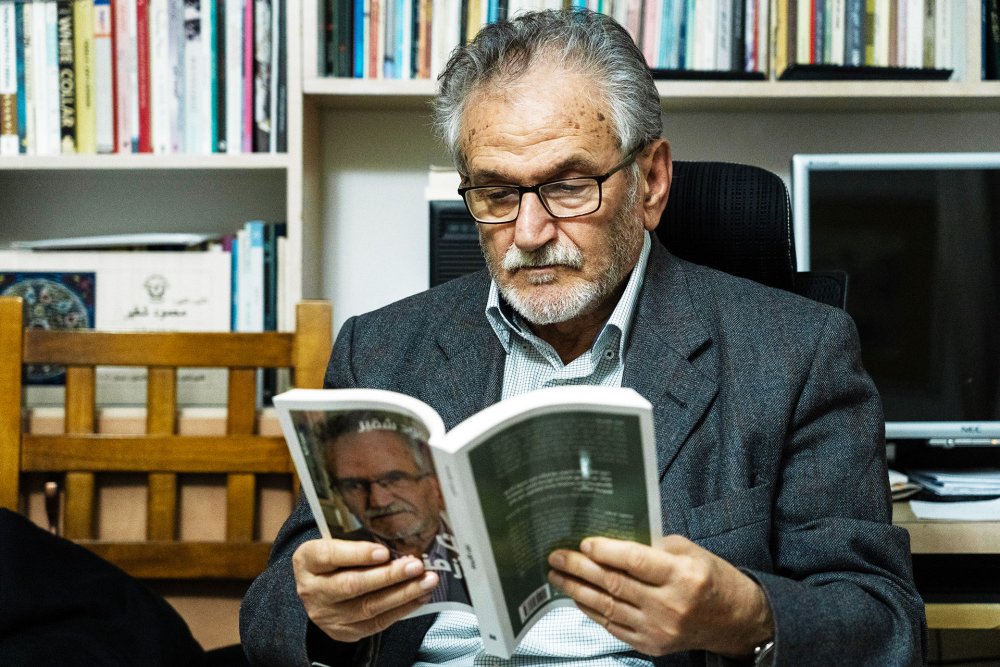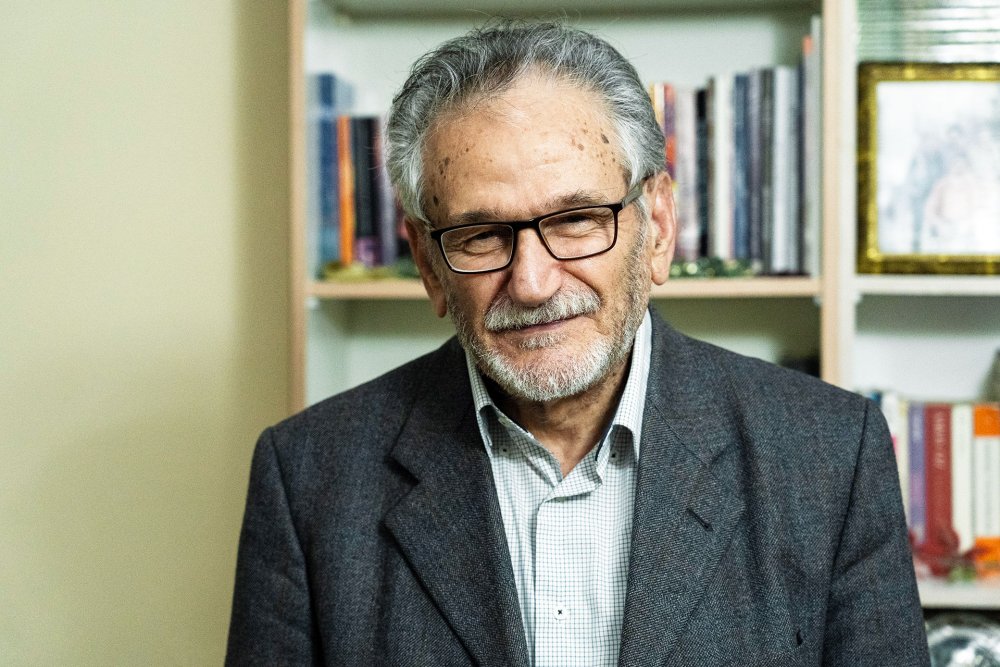“I was born and lived in the same house in Jabal Mukabbir, and it seems I will spend the rest of my life in it.”1
The house in question has witnessed modification and restoration; it is located in the middle of alleys and neighborhoods that carry the whiff of a bygone past and residents who have not left Jerusalem since the dawn of creation.
Novelist Mahmoud Shukair, 83, greeted me at the entrance to his house, his eyes radiating vitality, and his hand extended in welcome and generosity. For the duration of our visit, a faint smile graced his face.
His office contains hundreds of literary books and autobiographies and is crowded with certificates of honor, honors, and awards. It is where Shukair spends most of his waking hours. He wakes early in the morning and gets to work for a few hours before the concerns of daily life intrude on his attention. He writes, edits, and proofreads manuscripts in the morning and late afternoon. In between, he takes a break; his eyes get tired and his back begins to hurt. He leaves his office to perform his social duties all over Jerusalem and beyond, including participating in happy events, consoling relatives and friends in their sorrow, visiting a patient, or meeting a friend.
As a result, he tells me, he is busy all day long.




